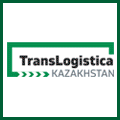- New research reveals the most expensive language to master is Korean, which would set beginners back €130,820 to become fluent.
- Romanian is found to be the cheapest language to become fully fluent in, costing a total of approximately €14,270.
- The average cost of becoming fluent in a language is €38,320, which would take 44 weeks.
A recent study has identified the expenses needed to learn various languages fluently, with Korean ranking as the most expensive and Romanian being the most budget-friendly.
The research, carried out by the online education discovery platform Internet of Learning, analysed the learning expenses across 66 languages to determine which would cost the most. By factoring in the time needed to master the language, the study examined the median expenses of online tutors to calculate the overall cost of becoming fluent.
Most Expensive Languages to Learn
The study revealed that Korean is the costliest language to master, with the cost for beginner-level speakers to achieve fluency estimated at approximately €130,820. As it is recommended to dedicate a minimum of 2,200 hours to learning, spanning 88 weeks, a 50-minute session would set you back a median cost of €49.56. Though lessons can be as little as €7 per session, some premium tutors may charge up to €92.12. With the highest prevalence of speakers in South Korea, 80.7 million people worldwide speak Korean as their mother tongue.
Most Expensive Languages to Become Fluent In
|
Rank |
Language |
Total Cost |
|
1 |
Korean |
€130,820 |
|
2 |
Arabic |
€124,670 |
|
3 |
Chinese – Mandarin |
€123,130 |
|
4 |
Japanese |
€103,120 |
|
5 |
Hebrew |
€66,180 |
|
6 |
Ukrainian |
€63,870 |
|
7 |
Kazakh |
€63,870 |
|
8 |
Polish |
€59,250 |
|
9 |
Chinese – Cantonese |
€58,480 |
|
10 |
German |
€51,630 |
Arabic ranks second-most expensive at €124,670, requiring 2,200 hours of learning to master fully. Despite being behind Spanish and French in terms of available tutors, Arabic still offers a significant pool, with session fees ranging from €2.33 to €92.12 for a 50-minute lesson. With a total of 372.7 million people worldwide speaking Arabic as their mother tongue, Europe is home to almost 6 million speakers alone.
In third place is Mandarin, requiring beginners to invest €123,130 over 88 weeks of learning. Tutors typically charge between €2.33 and €90.95 for 50-minute sessions, with a median cost of €46.64 per session. With Mandarin spoken by 70% of Chinese speakers, beginners can access over 1,556 online tutors on platforms like Preply.
Following in the fourth position is Japanese, with a total cost of €103,120, and then Hebrew takes the fifth spot at a total cost of €66,180.
Cheapest Languages to Learn
Romanian was the most cost-friendly language for beginners, requiring a €14,270 investment to become fully fluent. Estimated to need 600 hours to learn, the median cost for an hour-long lesson stands at €23.79. While some lessons are as cheap as €7 per 50-minute session, more experienced tutors can charge up to €32.65. With over 30 million native speakers worldwide, approximately 4 million more speak Romanian as their second or third language.
Cheapest Languages to Become Fluent In
|
Rank |
Language |
Total Cost |
|
1 |
Romanian |
€14,270 |
|
2 |
Tamil |
€16,160 |
|
3 |
Telugu |
€16,230 |
|
4 |
Tagalog |
€16,930 |
|
5 |
Kurdish |
€17,700 |
|
6 |
Haitian Creole |
€18,880 |
|
7 |
Indonesian |
€18,880 |
|
8 |
Dari |
€19,230 |
|
9 |
Burmese |
€20,010 |
|
10 |
Uzbek |
€20,010 |
Ranked as the second-cheapest language to learn, Tamil requires a total expense of €16,160 for beginners. With approximately 64 million speakers in India alone, a further 3 million natively speak the language in Northern and Eastern Sri Lanka. Expected to take 44 weeks to master, with 25 hours of learning per week, the median cost of an hour-long session stands at €14.69. While the priciest 50-minute session can reach €19.82, certain tutors offer lessons for as little as €4.66.
The third-cheapest language to learn is Telugu, which would take €16,230 to become fluent in. Much like Tamil, mastering Telegu would also require a 44-week commitment, and is predominantly spoken in India. In the 21st century, Telegu had more than 75 million speakers. The median cost for an hour-long lesson averages around €14.75, with sessions available for as little as €5.83 for a 50-minute session.
Tagalog is fourth at a total cost of €16,930, and Kurdish takes the fifth position at €17,700.
Commenting on the results, Manno Notermans, Founder of Internet of Learning, said: "While mastering a second language offers invaluable benefits, pricey tuition fees can deter many. It's no surprise that the language industry is projected to soar by €106.2 billion by 2030. Budget-conscious beginners could explore endless free online resources such as language-learning apps and streaming foreign shows, though resource availability depends on the specific language and personal learning preferences.
“An engaging language instructor can significantly enhance the language learning journey, granting unparalleled personalized attention, a sense of accountability and ongoing motivation that's nearly impossible to replicate for free. When uncertain about taking the leap and investing money, it's crucial to first delve into online reviews from real users or adopt a "try before you buy" strategy before fully committing."
Source, https://internetoflearning.org



.jpg)






